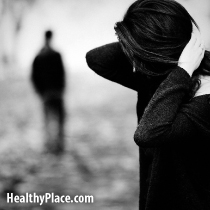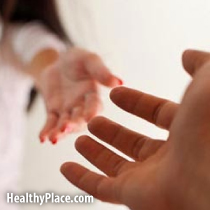A Rumor of Rape

This afternoon I heard a disturbing rumor about rape from several different people. Some said it happened in West, some said it happened in a fraternity, some said two males were involved, some said one, but they all had the same thread running through them: they were strung together with unsubstantiated facts and amounted to nothing more than hurtful gossip.
I was appalled by this lack of empathy and tabloid-like obsession with a tragedy for several reasons. Initially, it struck me that the alleged victim must be horrified by the rumors spreading, like the warehouse fire of last week, across campus. In a time during which she should be supported by her college community, she is instead treated as if she was involved in a scandal. Rape is a crime - it is not "who dumped who," or other such still hurtful, but relatively harmless gossip. The survivors of rape face years of emotional and psychological difficulties resulting from this crime. And in many cases, the way the victim is treated by her community after the rape makes a huge difference in her healing. As a community, we should be ashamed of the way we are treating this alleged victim.
Rape, for the victim, is a horrible loss of control. In the aftermath of rape, control becomes paramount for the victim. This includes controlling how and when and who she tells about the rape. If she decides to press charges, her story will be widespread and many will hear about it, but because she has made the choice to tell people, the experience can be a healing one. If she decides to not press charges, as many victims do (approximately 30% of sexual assaults are reported to law enforcement officials) because they fear exactly what is happening now, she should be allowed to tell her story when she is ready.
On our campus, we have many options of survivors of sexual assault, such as Safe Space, which has a beeper number (1-800-283-2255) victims can call if they need to talk to someone. But a victim of sexual assault who has been so poorly treated as the alleged victim in this case is less likely to try to seek help - in most cases she will bury the incident. As a community, we should encourage victims to speak out about their experience, as silence binds many survivors, but we should not speak out for them, especially when we don't have the first clue about what we're talking about.
Now we should look at it from a different perspective: suppose the rumor has no truth to it, which is a distinct possibility. Not only are we putting a woman in the very distressing (as one in four women on our campus know) position of a rape victim, but we are marring the reputation of one (or was it two? Somebody said it was two, or maybe three) men.
Rape does happen at Union. It happens almost every weekend, yet only two were reported last year. It is important for the campus to have an open dialogue about sexual assault in an attempt to prevent it from happening. But rumors are the wrong way to talk about rape.
If you are a survivor of sexual assault, please do not let the insensitive behavior of our campus deter you from speaking out. If you need to talk to someone, call the safe space beeper or RAINN (the Rape Abuse and Incest National Network) at 1-800-656-HOPE.
next: Inspiration for Rape Survivors, Sexual Abuse Survivors
~ all Escaping Hades articles
~ all abuse library articles
~ all articles on abuse issues
APA Reference
Staff, H.
(2008, November 17). A Rumor of Rape, HealthyPlace. Retrieved
on 2026, January 14 from https://www.healthyplace.com/abuse/articles/a-rumor-of-rape





 Now, after reading your articles I can comfortably say, I am back to "me" and will not worry whether I meet someone or not. Another person will not make "me" happy. You are so right! Why I lost track of this, I'll never know. But you were god sent, and was so happy that your column just happened to be there at just the right moment. Bless you."
Now, after reading your articles I can comfortably say, I am back to "me" and will not worry whether I meet someone or not. Another person will not make "me" happy. You are so right! Why I lost track of this, I'll never know. But you were god sent, and was so happy that your column just happened to be there at just the right moment. Bless you." If you also make a conscious decision to resolve not to allow those same problems to happen again, you will begin to feel better about yourself and the pain will ease. In time, you will look back and wonder how you could have let something like that happen to you. You will also wonder how you could have allowed yourself to feel the way you feel right now. You will look back in disappointment. You will be proud that you no longer will allow yourself to grovel in self pity and pain like you did in the past.
If you also make a conscious decision to resolve not to allow those same problems to happen again, you will begin to feel better about yourself and the pain will ease. In time, you will look back and wonder how you could have let something like that happen to you. You will also wonder how you could have allowed yourself to feel the way you feel right now. You will look back in disappointment. You will be proud that you no longer will allow yourself to grovel in self pity and pain like you did in the past. I'm often pointing out to clients who complain of low energy levels and chronic fatigue in winter, that our culture has become vastly alienated from the natural cycles of the seasons. Consequently, many suffer from forcing their bodies to ignore the dictates of their biological rhythms. Gallagher explained this dilemma by observing that the root of winter depression is the lack of sunlight, coupled with the conflict which exists between our internal clock and the clock inflicted upon us by society. Further, Gallagher refers to research which implies that the more a society disregards natural rhythms, the more often cases of SAD will occur. Next, Gallagher points out how urban Alaskans fare much worse than the natives of Alaska during the long dark winter. Gallagher shares that, "...Perhaps most important, Native Alaskans see winter as a time to kick back and have some fun, the oldest and best antidepressant."
I'm often pointing out to clients who complain of low energy levels and chronic fatigue in winter, that our culture has become vastly alienated from the natural cycles of the seasons. Consequently, many suffer from forcing their bodies to ignore the dictates of their biological rhythms. Gallagher explained this dilemma by observing that the root of winter depression is the lack of sunlight, coupled with the conflict which exists between our internal clock and the clock inflicted upon us by society. Further, Gallagher refers to research which implies that the more a society disregards natural rhythms, the more often cases of SAD will occur. Next, Gallagher points out how urban Alaskans fare much worse than the natives of Alaska during the long dark winter. Gallagher shares that, "...Perhaps most important, Native Alaskans see winter as a time to kick back and have some fun, the oldest and best antidepressant." Multiple medications are available to stabilize acute symptoms of bipolar I disorder. Unfortunately, even when these medication regimens are maximized, patients still are at substantial risk for symptom recurrence. In a significant number of patients with bipolar I disorder, symptoms recur within two years, and approximately one half of patients have significant inter-episode symptoms. In addition, patients with bipolar disorder who receive mood stabilizers often have significantly impaired work, family, and social relationships after their acute symptoms have resolved. This information led the National Institute of Mental Health to recommend that research in bipolar disorder concentrate on developing adjuvant psychosocial interventions. The primary objective for this adjuvant therapy is to prevent bipolar relapses, reduce interepisode symptoms, and encourage consistency with medication use. One such adjuvant treatment that has shown promise is family therapy. Miklowitz and colleagues evaluated a family-focused therapy program for patients with bipolar disorder to determine its impact on the period of remission, mood symptoms, and medication compliance.
Multiple medications are available to stabilize acute symptoms of bipolar I disorder. Unfortunately, even when these medication regimens are maximized, patients still are at substantial risk for symptom recurrence. In a significant number of patients with bipolar I disorder, symptoms recur within two years, and approximately one half of patients have significant inter-episode symptoms. In addition, patients with bipolar disorder who receive mood stabilizers often have significantly impaired work, family, and social relationships after their acute symptoms have resolved. This information led the National Institute of Mental Health to recommend that research in bipolar disorder concentrate on developing adjuvant psychosocial interventions. The primary objective for this adjuvant therapy is to prevent bipolar relapses, reduce interepisode symptoms, and encourage consistency with medication use. One such adjuvant treatment that has shown promise is family therapy. Miklowitz and colleagues evaluated a family-focused therapy program for patients with bipolar disorder to determine its impact on the period of remission, mood symptoms, and medication compliance.